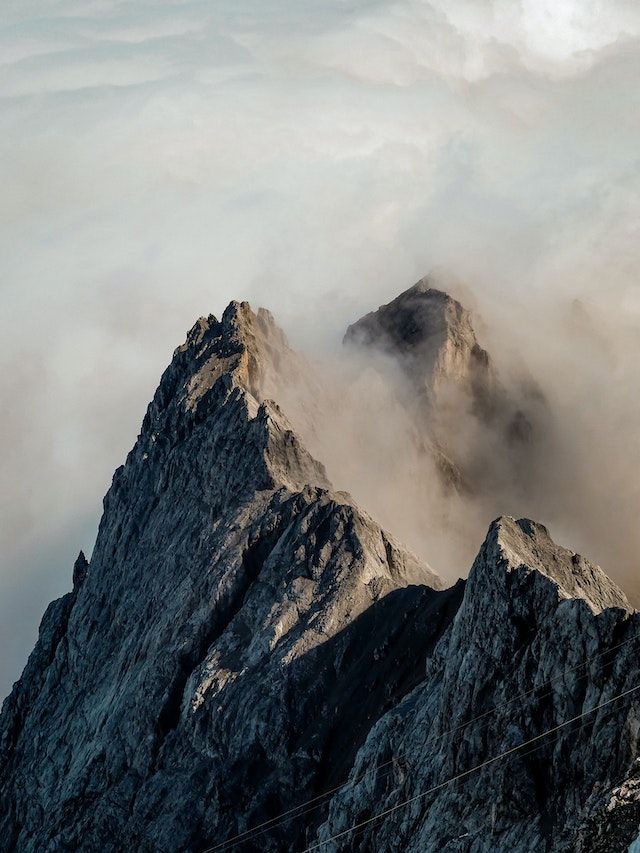Presence, Absence, and a Cry from the Wilderness

This Advent, I have been thinking and praying very much about darkness and light. This has led me to many interesting conversations and explorations into darkness in particular. Darkness, both in the Bible and in Christian discussions and theology, comes with two major meanings. The first is probably the more common of the two: Darkness as the absence of light. This is what John is getting at when he describes light coming into the world: “The light shines in the darkness, and the darkness did not overcome it.” (John 1.5) I suspect this idea of absence is what most of us think of first when we imagine darkness. It is the absence of light and the increased danger that not being able to see clearly brings to so many of us. The other meaning of darkness is that, not of absence, but of presence. It is the darkness in which God is seen to dwell, whether the holy of holies in the temple of Jerusalem, the cloud atop Mount Sinai, or the womb of Mary in which Jesus grows. This darkness is a place of sacred presence and filled with a holiness all of its own. Something to be sought after by those who seek to know God. Quite different from a simple absence of light.
In today’s Gospel passage (Matthew 3.1-12), we are confronted with a prophet who emerges from the wilderness with a word for the people in and around Jerusalem. A prophet is one who speaks and makes God present to those with ears to hear, but is not themselves God. In the prophet, God is both present and absent at once. Similarly, the wilderness around first-century Jerusalem is a place associated with absence. Absence of security, of food, of civilization, of friends and neighbours. The wilderness is a place to be endured when necessary, not a place to dwell. But it is also a place where people venture to seek God, to find clarity in the quiet, to seek the presence that is found only in the absence. Both prophet and wilderness, like darkness, carry the ideas of presence and absence with them. As John, the Forerunner of Christ, emerges from the wilderness and begins his own ministry of encouragement to repentance and baptism for the forgiveness of sins, he speaks again of presence and absence. For those who hear what John has to say, he calls them to clean up their lives. To remove spiritual detritus and clutter, to make a clear path for the arrival of God in their midst. The Lord is coming and one would not want to be found without space should one be in the divine presence. John calls the people to meditate on what is truly important and to cast aside that which is not. The ax is already at the roots of trees which do not bear good fruit and the winnowing fork is ready to separate wheat from chaff. We each have our own work to do, separating what is good from what is not needed as we prepare for the Lord’s coming and, as John reminds us, some of the separating work is difficult indeed.
John cautions his Judean neighbours not to rely on their inheritance as children of Abraham to keep them in God’s good graces. Should God want, children of Abraham can be raised from the very stones. John’s call to cleanse and prepare is emphasized to his first-century audience by his emergence from the wilderness. An appeal to their ancient patriarch, Abraham, is tempting, but John—clad in clothing and the mystery of the wilderness—reminds them of a time when they traveled the wilderness themselves, with Moses. In those days, they were people who lived in the presence of God, carried in the Ark of the Covenant, but who moved through absence, without a home beyond the tents they furled and carried with them. In those days they had no temple, not even kings, but in that absence, they had the presence of God.
John’s calls to repentance are a holy demand that his neighbours and each of us take seriously. As we prepare for our annual Christmas celebrations and look with joyful expectation for the second coming of the Lord, we hear again John the Baptist’s cries. Where are we called to find the presence of God, and where are we called to contemplate an absence that God might fill? Where is the darkness that is meant to be filled with the light of Christ, remembered in Christmas trees and Advent wreaths? And where is the darkness that holds the deep, sacred presence of God? Both are to be approached with care. Both are holy. Both are Advent blessings.
Photo by Marcel Löffler





